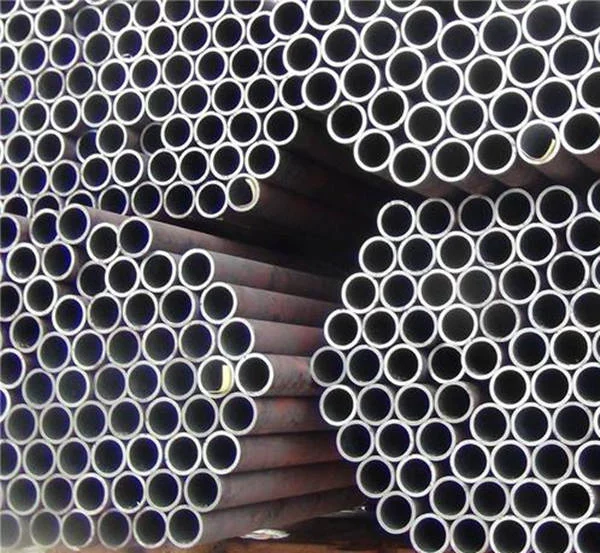Enhancing Strength, Corrosion Resistance, and Versatility with Alloy Pipes
For piping applications ranging from high-pressure industrial systems to specialized food processing equipment, alloy pipes deliver enhanced durability, performance, and corrosion resistance beyond standard carbon steel. By alloying steel with elements like chromium, nickel, molybdenum, titanium, and others, pipe manufacturers can create advanced materials tailored for demanding piping needs.
What are the key benefits and uses of alloy pipes? What alloys are best for certain applications? Below we’ll explore the capabilities that make alloy pipe an important component in a wide variety of piping projects and process systems.
What Are Alloy Pipes?
Alloy pipes start with a steel base that is mixed with other metals to improve specific properties. Some common alloying elements include:
-Chromium – Added up to 11% to significantly improve corrosion resistance for stainless steel alloys. Also increases hardenability.
-Nickel – Boosts corrosion resistance and improves elevated temperature strength. Common in stainless steel, super alloys, and heat-resistant pipes.
-Molybdenum – Significantly strengthens steel at high temperatures. Resists corrosion. Used in heat exchangers and super alloys.
-Manganese – Enhances steel strength and hardenability for high strength structural applications. Also helps combat corrosion.
-Tungsten – Dramatically increases steel’s temperature resistance for furnace parts, engine components and heat exchangers.
-Copper – Improves corrosion resistance in structural steel and can allow heat treatment strengthening.
-Titanium – Creates very strong but lightweight steel alloys used in aviation, marine hardware, and chemical processing.
Key Benefits of Alloy Pipes
Compared to standard carbon steel, alloying elements enable pipes with enhanced properties:
-Improved strength – Manganese, molybdenum, titanium, nickel, and other alloys can significantly increase steel’s tensile and yield strength ratings. This allows thinner walls to withstand pressure.
-Better corrosion resistance – By adding chromium, nickel, copper, and other elements, steel alloys better withstand rust, chemical attacks, and environmental degradation over time.
-Higher temperature ratings – Molybdenum and tungsten especially allow steel pipe alloys to be used in very hot or cold process temperatures beyond the range of carbon steel alone.
-Lighter weight – Alloys utilizing titanium can achieve very high strength with lower density, creating strong but lightweight pipe solutions.
-More weldable – Alloy adjustments can optimize steel properties to make pipes easier to weld and fabricate together during installations.
-More ductility – Certain alloys boost steel’s ductility levels, decreasing the chance of sudden shattering failures under pressure or impact loads.
Key Applications for Alloy Pipes
The tuned properties of alloy piping make it suitable for uses like:
-Petrochemical – Stainless and super alloys withstand corrosion from acids, solvents and salt water exposure in oil, gas and chemical processing.
-Food and Beverage – Stainless steel alloy sanitary tubing protects purity for milk, juice, soda, alcohol, and other edible products.
-Pharmaceutical – Highly corrosion-resistant super alloys prevent toxic drug contamination and preserve purity.
-Marine Systems – Stainless and super alloys in seawater piping prevent corrosion-related leaks or failures on ships and offshore platforms.
-Nuclear Sites – Specialty nickel alloys offer the extreme temperature and radiation resistance needed in power plants.
-Aerospace – Strong but lightweight titanium alloys meet the demands of reduced mass and fatigue resistance in aircraft.
-Gas Turbines – Heat-resistant cobalt and nickel-based alloys withstand the intense temperatures inside jet engines and gas turbines.
-Auto Racing – Durable but lightweight titanium exhaust piping improves power and reduces weight for racing performance.
Common Alloy Pipe Types
With so many potential alloy variations, some that are frequently used include:
-304/304L Stainless – A versatile, food-grade stainless steel resistant to chemicals and chlorides. Often used for pumps, valves, chemical equipment, pharmaceuticals, and drinking water.
-316/316L Stainless – Ideal for salt water and chlorine environments like desalination plants and marine piping. Molybdenum boosts corrosion resistance.
-Duplex Stainless – A very strong stainless steel for high-pressure and abrasive applications like pipelines and offshore platforms.
-Inconel 600 – A nickel-chromium alloy that maintains strength across a wide temperature range from cryogenics to elevated temperatures.
-Incoloy 825 – Nickel-iron alloy with excellent acid resistance and high strength at elevated temperatures up to 1000°F.
-Hastelloy – Several nickel and molybdenum alloys designed for extremely corrosive chemical environments like acid processing.
-Monel – Strong nickel-copper alloy excellent for salt and hydrofluoric acid resistance with low magnetic permeability.

Alloy pipes deliver enhanced capabilities tailored for the most demanding piping challenges far beyond standard carbon steel. Partnering with knowledgeable material suppliers ensures access to premium alloy products that integrate seamlessly into new or existing process systems and industrial facilities.

